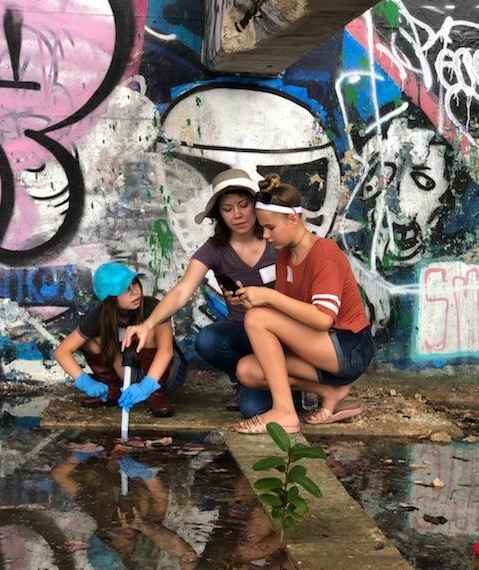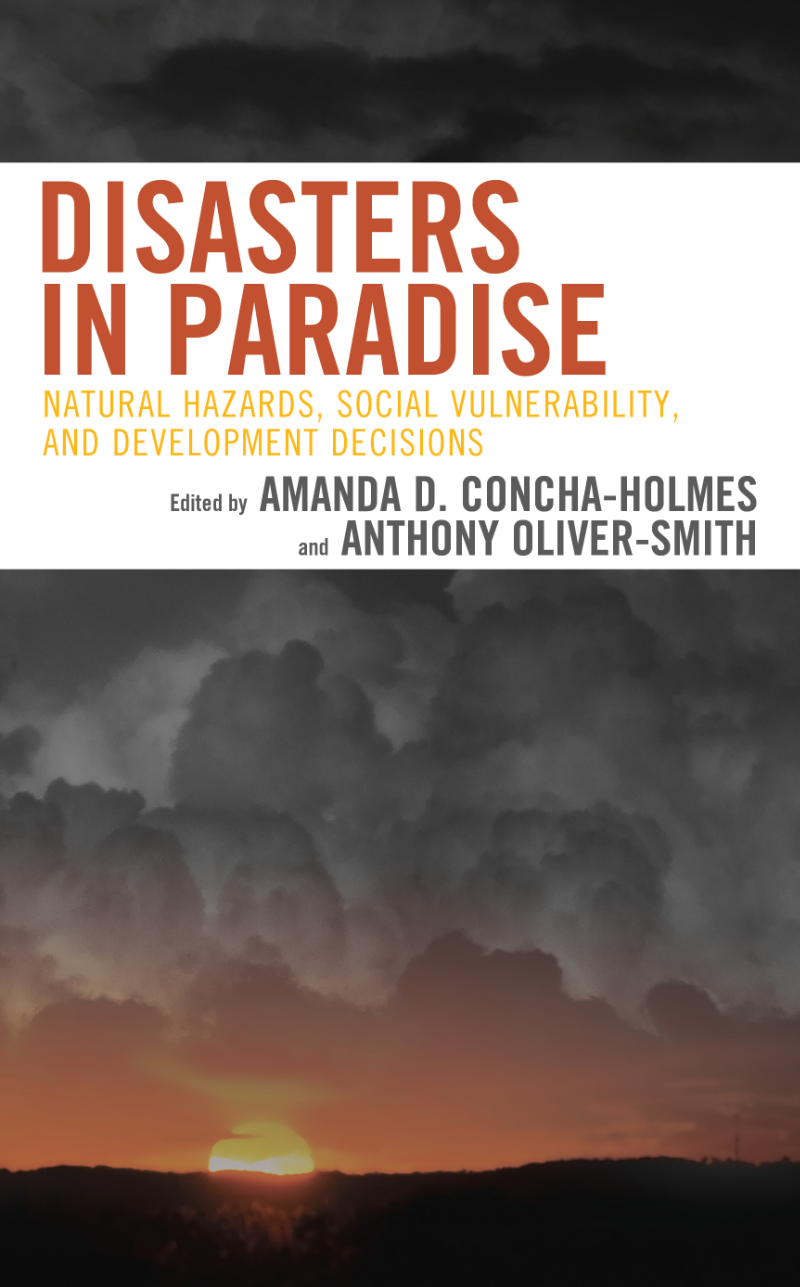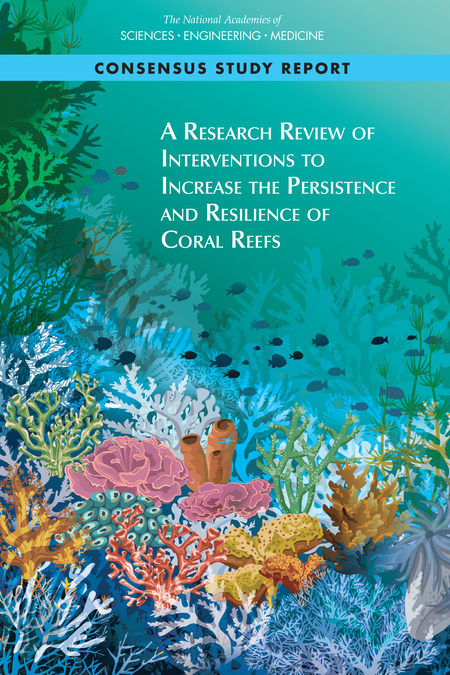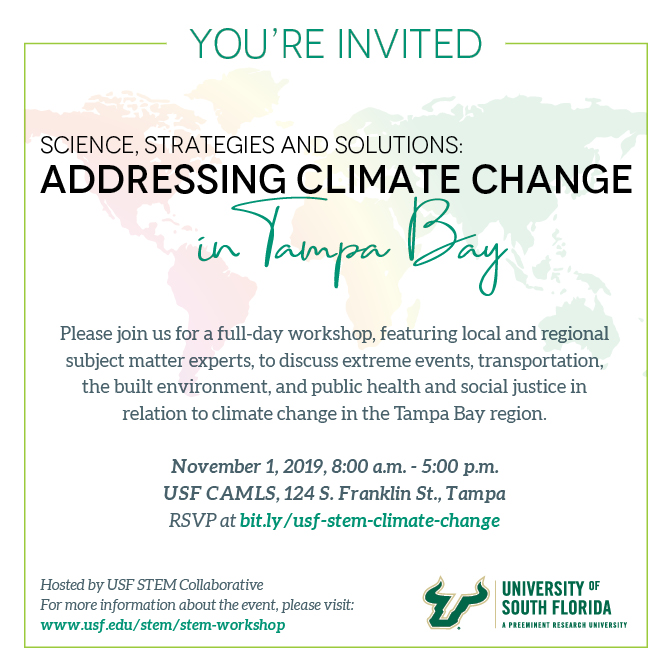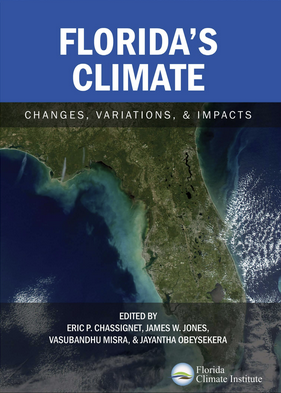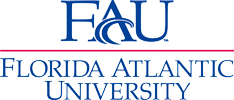 |
|
2019 Sea Level Solutions Day Coming Up!
Sea Level Solutions Day is an annual event hosted by the Sea Level Solutions Center in FIU's Institute of Water and Environment. The event calls on citizen scientists to come together during the King Tides to take water samples across several sites in Miami. Citizen scientists are equipped with "citizen science kits" that include sampling materials. The sea level rise data is collected and deposited into a living database to be used to verify frequency and extent of urban flooding in Miami, Florida. The data will inform adaptation solutions to increasing sea level rise concerns for vulnerable communities. For more information or to RSVP for the next event, which will be held October 27, go to: https://slsc.fiu.edu/solutions/outreach-and-engagement/citizen-science/index.html
|
New Book Explores Social and Environmental effects of Florida's Public and Private Development Policies
Long considered ground zero for global climate change in the US, Florida presents the perfect case study for disaster risk and prevention. Building on the idea that disasters are produced by historical and contemporary social processes as well as natural phenomena,
Amanda D. Concha-Holmes and
Anthony Oliver-Smith present a collection of ethnographic case studies that examine the social and environmental effects of Florida's public and private sector development policies. Contributors to
Disasters in Paradise: Natural Hazards, Social Vulnerabilities, and Development Decisions explore how these practices have increased the vulnerability of Floridians to hurricanes, tornadoes, floods, droughts, frosts, and forest fires. The book is available on Amazon and there will be a book launch on Nov. 14 at the Matheson History Museum in Gainesville, FL.
|
A Research Review of Interventions to Increase the Persistence and Resilience of Coral Reefs
Coral reef declines have been recorded for all major tropical ocean basins since the 1980s, averaging approximately 30-50% reductions in reef cover globally. These losses are a result of numerous problems, including habitat destruction, pollution, overfishing, disease, and climate change. Greenhouse gas emissions and the associated increases in ocean temperature and carbon dioxide (CO2) concentrations have been implicated in increased reports of coral bleaching, disease outbreaks, and ocean acidification (OA). For the hundreds of millions of people who depend on reefs for food or livelihoods, the thousands of communities that depend on reefs for wave protection, the people whose cultural practices are tied to reef resources, and the many economies that depend on reefs for fisheries or tourism, the health and maintenance of this major global ecosystem is crucial. A new report by the National Academies of Sciences, Engineering, and Medicine examines novel approaches for saving coral reefs imperiled by climate change, and how local decision-makers can assess the risks and benefits of intervention.
|
ABA Article Discusses the Challenges of Sea-Level Rise and Infrastructure for Local Government
A recent article in the American Bar Association's website section on Environment, Energy, & Resources provides a simplified and jargon-free introduction to some of the basic legal and policy issues that sea-level rise presents for local governments that confront sea-level-rise impacts on their infrastructure. End notes to the article, written by Thomas Ruppert, Esq. and entitledSea-Level rise and Infrastructure: A Challenge for Local Government provide detailed resources for those interested in further exploration of the topic.
|
|
Proposed Florida Climate Assessment
The proposed Florida Climate Assessment will:
- Produce a strategic tool with standards, data, analyses, andthresholds for use in planning, decision-making, setting research agendas, and use in public policy and legislation
- Ensure resiliency decisions are informed by the best available science through an iterative, stakeholder driven process that is easily updated and user-focused
- Use the best science in a manner that is responsive, supportive, and critical focusing on systems and not separate sectors
- Improve relationships between knowledge producers and users and yield better decisions and outcomes to build capacity and overcome barriers
We want to know your thoughts on the proposed Florida Climate Assessment and its potential value to your work and to the state of Florida.
Email us and please include your name, contact information, affiliation, and position.
|
|
Awards & Achievements
Thomas Ruppert, Esq., Coastal Planning Specialist with the Florida Sea Grant College Program, in conjunction with the UF/IFAS Extension and the UF CIVIC program, received a grant from the National Sea Grant Office to engage with under-represented communities in Pinellas County through the project "Citizen-Driven Flood Risk Management and Adaptation: Empowering Florida's Underserved Communities to Improve Resilience." The goal of the research, which will include engaging members of the selected communities about their personal experiences and thoughts about current and future flood risk in their communities, is to empower these communities to leverage their own experiences, local knowledge, and distinct perspectives to advocate for policies to reduce flood damages and promote equity and inclusion.
|
|
Upcoming Events & Webinars
|
|
Job, Internship, and Fellowship Opportunities
PhD Student Position - Ecological modeling and decision analysis to inform decision making for coastal marine ecosystem restoration projects | UF Dept of Wildlife Ecology and Conservation | Gainesville, FL
Graduate Student Research Assistantship - Sustainable Urban Water Management Project | University of Nevada Reno (
contact Dr. Elizabeth Koebele)
|
|
Publications
Marlon, J. R., van der Linden, S., Howe, P. D., Leiserowitz, A., Woo, S. H. L., & Broad, K. (2019).
Detecting local environmental change: the role of experience in shaping risk judgments about global warming.
Journal of Risk Research, 22(7), 936-950.
Wing, A. A., Camargo, S. J., Sobel, A. H., Kim, D., Moon, Y., Murakami, H., et al. (2019).
Moist Static Energy Budget Analysis of Tropical Cyclone Intensification in High-Resolution Climate Models.
J. Climate, 32(18), 6071-6095.
|
A Book from the FCI:
Florida's Climate: Changes, Variations, & Impacts
Florida's Climate: Changes, Variations, & Impacts provides a thorough review of the current state of research on Florida's climate, including physical climate benchmarks; climate prediction, projection, and attribution; and the impacts of climate and climate change on the people and natural resources in the state. The book is available for purchase in paperback and Kindle format at
Amazon.com.
Individual chapters may be accessed on the
FCI website.
|
|
About Us
The Florida Climate Institute (FCI) is a multi-disciplinary network of national and international research and public organizations, scientists, and individuals concerned with achieving a better understanding of climate variability and change.
Email: info@floridaclimateinstitute.org Website: floridaclimateinstitute.org
|
|
|
|
|
 |


